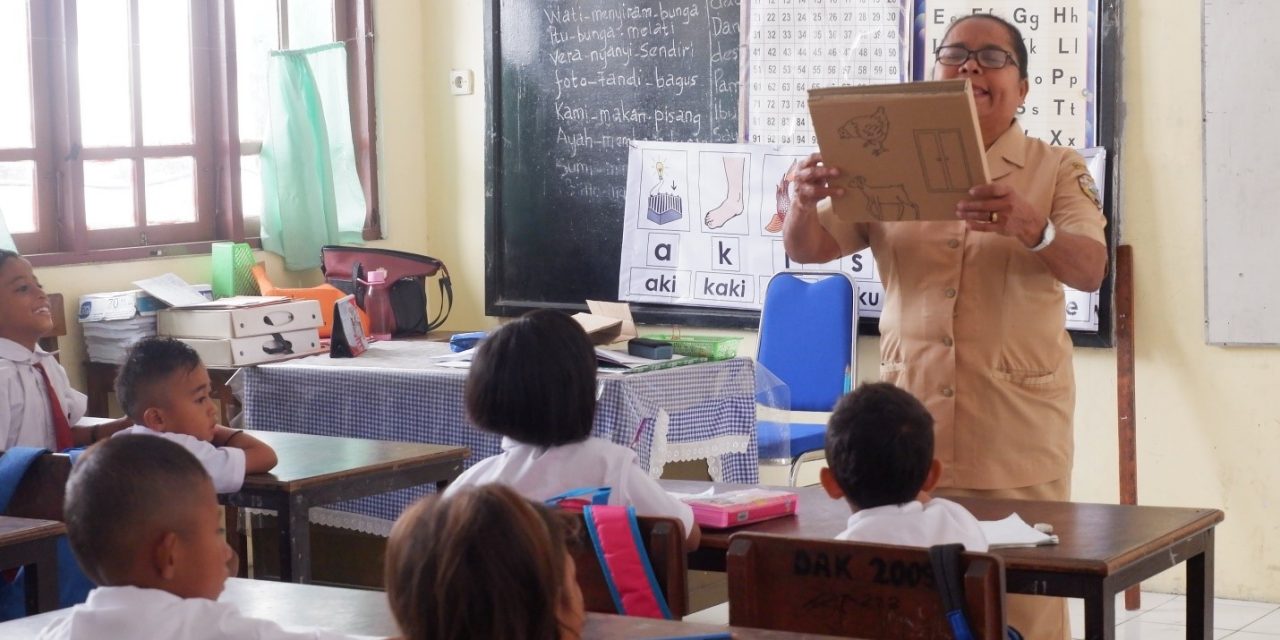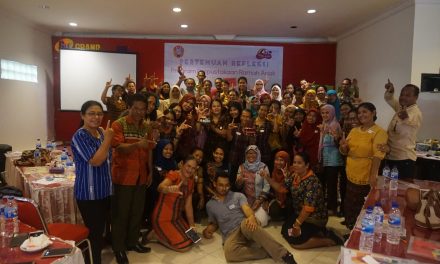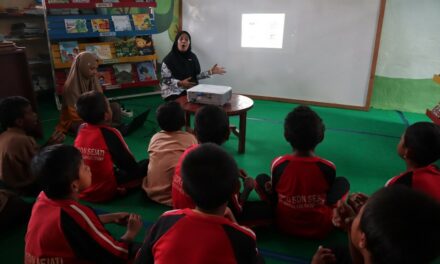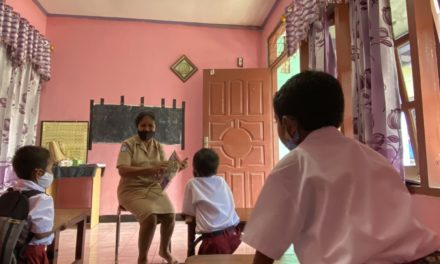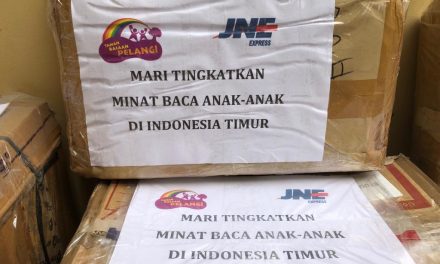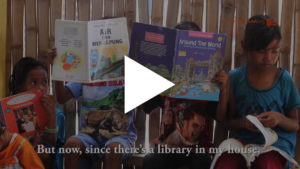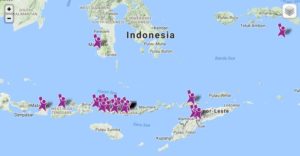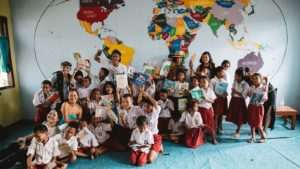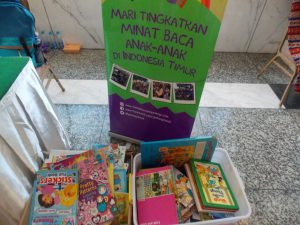The First Impression
This was my first time on Flores. The minute I arrived here in Ende, I thought to myself, “How lucky are these people?” The town sits in the middle of an array of stunningly lush hills by Flores sea. This thought bubble grew even bigger when I visited the wonderful Kelimutu lakes and Wologai, an 800-year-old traditional village with its ancient-looking houses several-hour-drive away from Ende. I then started to speculate that there is a probable correlation between this stunning nature around Ende and how happy-looking everyone is here. People here have some of the loveliest, widest smiles in the world. I soon discovered their love to sing and dance to super loud, cheerful music too!
Coming to a new place and adjusting to everything unfamiliar can be tricky, but I was pretty lucky as I got the warmest welcome from all of the humorous, like-minded team members at Rainbow Reading Gardens who were incredibly easy to get along with. Soon enough I found myself learning a lot from them about the nuts and bolts of educational interventions, literacy development, library management and the cultural aspects of working with people in remote areas, plus how to cook local delicacy within a tight budget!
The Schools
One of the things I enjoyed the most from my time with Rainbow Reading Gardens was my numerous early morning journeys to the primary schools in the country sides of Ende. The harmonious colours of the sun rays and the white morning mist perfectly shaped the top of the forests and hills surrounding the houses in the villages, like a fantasy land far far away in a children’s fairy tale book. Just magnificent!

As an effort to sustain the result of a three-day literacy teaching workshop held by Rainbow Reading Gardens. My friend Zulyamin Kimo and I were sent to ten selected schools around Ende as education evaluators to regularly support and mentor the first grade teachers in applying some new teaching methodology they had learnt in the workshop to their day-to-day teaching. After two months of mentorship, Rainbow Reading Gardens hopes that the school teachers will be able to confidently lead the new ways of teaching.
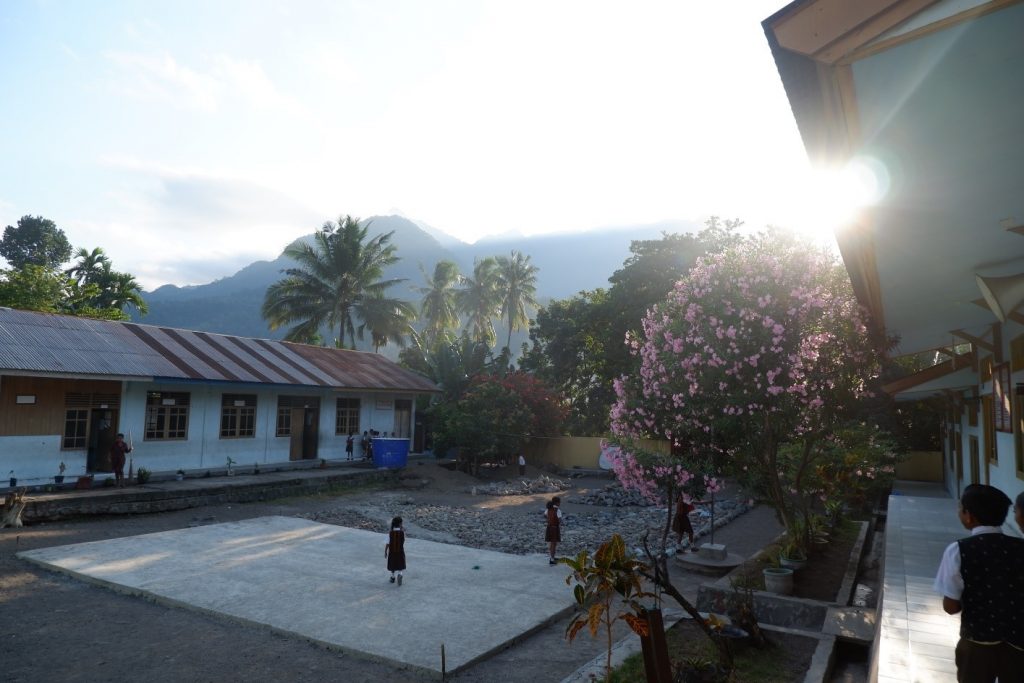
Many schools I visited in Ende were modest, yet spacious and beautifully situated in the mountainous areas and the children I met there were incredibly curious, funny and extremely friendly. They often poked their heads out of their classrooms to ask me, the stranger in their school, some random questions and gave me their widest smiles when I answered with my funny ‘non-Ende’ accent. When I had a chance to visit their school libraries renovated by Rainbow Reading Gardens, they often asked me to read them their favourite story books. Lots of the bigger kids seemed to love the idea of it too. Just like me when I was growing up, many of them here do not have the privilege of having parents reading to them on a daily basis. Most of their parents finished their education at primary schools, became farmers and got married at a young age. Many of the first graders had more than 5 or 6 siblings!
Is change inevitable?
Educational interventions in many regional schools in Indonesia often face one of those classic issues of outsiders wanting to impose the change they think is a good idea for ‘the better’ version of the place. As outsiders, however, we often forget that the people inside the circle we intervene have already got their well-established system for a long period of time, and they are, therefore, often culturally set in their ways. As far as they are concerned, change is not inevitable. Why change if you are comfortable doing your old ways of doing things? This seems to make a lot of sense.
Why bother plan a lesson before going to class if you can rock up to a class empty-handed and take out the usual textbook from your classroom cupboard? It’s easier not to do any lesson planning or any reading before going to class. It’s also easier to shout at your students when they start to go chaotic than planning your classroom management tricks before class. It seems that we tend to cling on to our old tacit knowledge and resist to not changing because we love to have control of what is going to happen, and we are often afraid of losing control of our comfort zone when we are introduced to change. It’s almost like our survival mechanism, I think.
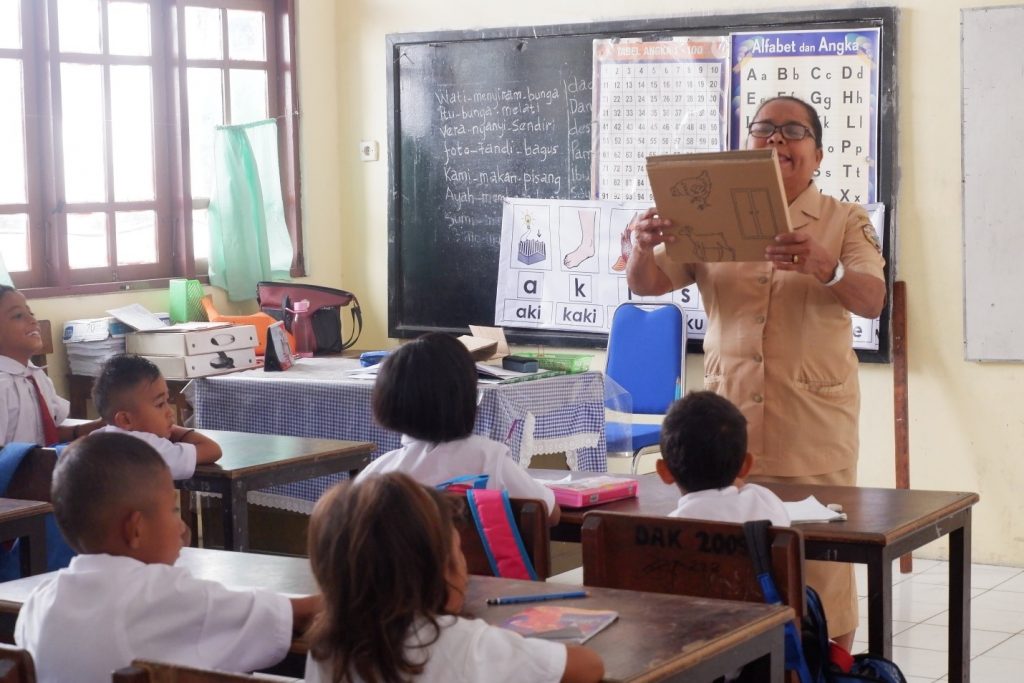
I learnt from my regular visits to the five primary schools that the introduction to the change of children’s literacy rate, reading habits and child-friendliness through new teaching methodology workshops is crucial but not adequate to spark a significant change in the classrooms. There seemed to be other stronger factors leading to the success of the change-making at schools such as teacher agency, school culture /work ethics and teaching and learning-oriented school leadership.
From all of the five schools that I observed, the more seemingly successful change-making processes in literacy were shown by the ones that had a combination of active teachers who were full of initiatives, stronger work ethics at school and supportive principals who put more emphasis on quality teaching and learning in their school. The change-making was happening when the classroom teachers genuinely thought it was a good idea to change their teaching for the better, in this case, in terms of children’s literacy and reading habit.
Work ethics was often shown by how much effort the teachers put in helping their students learn, e.g. coming on time to class, preparing their lessons before going to class and optimising teaching time in class. A supportive school principal usually tried their best to make sure that the two aspects were in check on a daily basis.
Having reflected on this change-making dynamics in several schools in under-privileged areas of Ende, I now feel that the real challenge for any future school intervention when introducing change is how to encourage teacher agency and teaching and learning-oriented school leadership to grow in smaller regions. It is essential to explore more innovative ways to stimulate teaching staff and principals to feel the need to initiate the change they would like to promote within their schools.
Ende, August 2019
Krisna
Education Evaluator – BBH Project
![Taman Bacaan Pelangi [Rainbow Reading Gardens]](/wp-content/uploads/2016/07/logo_taman_bacaan_pelangi_rainbow_reading_gardens_bilingual_d.png)
